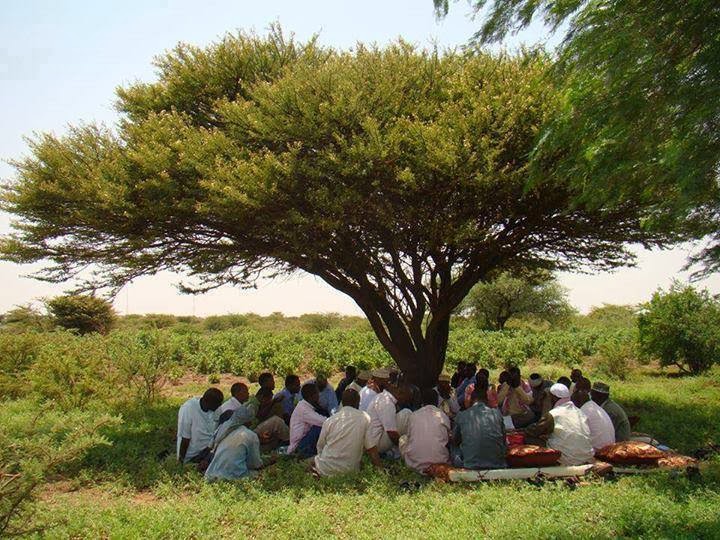Bashir M. Sheikh-Ali
There was a time when Somalia could have pursued reconciliation. When the war ended, when the guns fell silent, when families emerged from hiding to rebuild their lives, there was a chance. People had lost everything— homes, loved ones, trust in one another. The country was broken, but there was still a moment when healing might have been possible. That moment, however, passed. Not because Somalis were unwilling to forgive, but because survival took priority. Life moved forward, not because wounds had healed, but because there was no other choice.
It has now been over fifteen years since the war ended, and most people are not looking for justice or apologies. The victims and perpetrators of the conflict walk the same streets, sit in the same markets, and in some cases, work in the same government. Some who once commanded militias now wear suits and hold office. Some who lost everything have chosen to let go, not because the pain has disappeared, but because dwelling on the past does not put food on the table. Somalia never had a grand reconciliation process —no truth commissions, no national mourning, no moment of reckoning. The war ended, and the country simply moved on.
Yet, even as people have put the past behind them, Somalia remains in turmoil. Violence is no longer a civil war in the traditional sense, but the country is still deeply divided. Not by old grievances, but by politics, power, and the struggle for control. The real question today is no longer about whether Somalia can reconcile, but whether it can govern itself.
Politics in Somalia has become a battleground of its own. The federal system, which was meant to bring stability, has instead created new conflicts. The central government and regional states are locked in a constant struggle over authority, with disputes often escalating into armed confrontations. In some member states, the fight for autonomy has turned into a standoff with Mogadishu. No one knows where the limits of federal power end and where state power begins. Leaders argue over these questions, not based on constitutional structure, but based on bartering. Not in conference rooms, but through military standoffs and political brinkmanship. The constitution is vague, the rules are unclear, and without strong leadership to resolve these disputes, the country is stuck in an endless cycle of tension.
Then there is the issue of clan-based politics. For decades, the 4.5 power-sharing system has been the foundation of Somalia’s government. It was supposed to ensure that all clans had a voice, but instead, it has entrenched division. Political offices are distributed not based on competence, but on lineage. Some clans dominate, others are left behind. Corruption and nepotism thrive in such a system, and resentment festers among those who feel excluded. Somali identity is still shaped more by who you belong to than by what you can offer. Without leadership that rises above this, the country will remain fractured, not because of old wounds, but because of new injustices.
At the same time, Somalia faces threats from beyond its internal divisions. Al-Shabaab continues to be a destabilizing force, not just through violence, but through the way it exploits weak governance and disillusionment. The group thrives in areas where the government has failed to deliver basic services. While politicians in Mogadishu argue over power, militants fill the gaps left by the state, providing order however brutal in places the government cannot reach. Meanwhile, foreign powers continue to meddle in Somalia’s affairs, shaping its politics to serve their own interests. Without a strong and unified leadership, the country risks being pulled in different directions by external forces that do not prioritize Somalia’s stability.
The path forward is not reconciliation. That time has passed. The country does not need another debate over who was wronged and who should be forgiven. What it needs is governance. Strong, ethical, decisive leadership that can break the cycle of political infighting and steer Somalia toward a functioning state. The federal system must be clarified, with clear roles defined between the central government and the regions. The clan-based power-sharing system must eventually be reformed so that leadership is earned, not inherited. Resources must be distributed equitably, not hoarded by those with the right last name. Security forces must be strengthened and unified so that Somalia no longer relies on foreign armies to keep its own people safe.
Most importantly, Somalia must rediscover a sense of national identity. For too long, people have defined themselves by clan first, country second. That must change. Leadership is not just about laws and policies; it is about vision. Somalia needs leaders who can inspire a new generation to believe in something greater than clan loyalty, to see themselves as part of a nation rather than members of a tribe.
The war is over. The past has been left behind. But the future is still unwritten. Whether Somalia remains trapped in political dysfunction or rises to stability and prosperity will not be determined by reconciliation. It will be determined by leadership. The opportunity for healing may have passed, but the opportunity for progress is still there. The real question now is: who will lead Somalia forward?
Bashir Ali, Ph.D., J.D.
Email: BashirMSheikhAli@gmail.com
________
Related articles
The first step towards genuine reconciliation in Somalia By A. Baadiyow


Leave a Reply